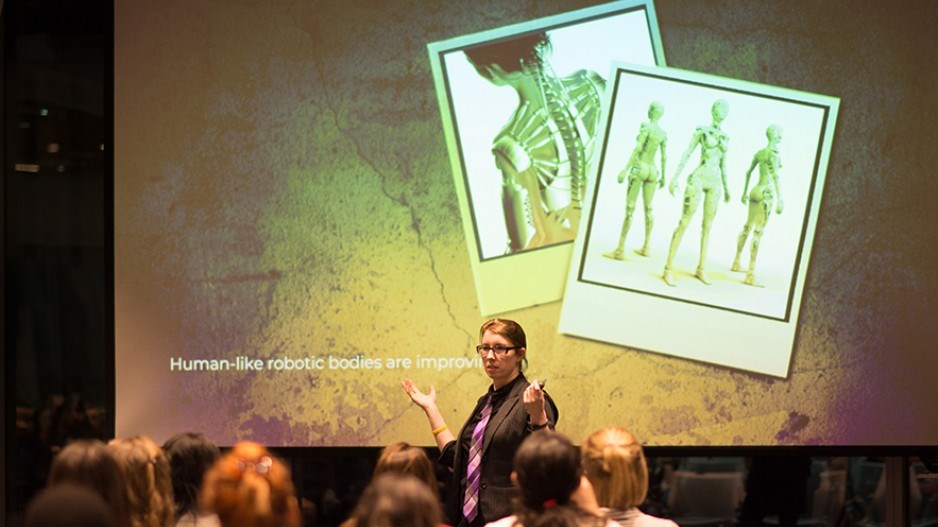In the HBO sci-fi series Westworld, human-like robots powered by artificial intelligence are used for sex and target practice by gun-wielding theme park patrons. The androids eventually rise up and exact their revenge.
The leaders and investors behind Sanctuary Cognitive Systems Corp. are hoping for a different outcome on the West Coast as they develop advanced systems for purpose-built robots that would take on tasks humans deem too dangerous or physically exhausting.
“We basically want to create a nice version of Westworld,” co-founder and chief technology officer Suzanne Gildert said shortly after the company’s launch in 2018.
Those ambitions have caught the attention of deep-pocketed investors that have just helped the Vancouver-based robotics firm close a Series A funding round to the tune of $75.5 million.
Sanctuary is developing human-sized robots meant to think just like people do with cognitive systems designed to mimic how the brain works.
And with the close of the funding round, announced Wednesday, it was also revealed former International Space Station commander Chris Hadfield has joined Sanctuary’s board along with tech exec and space tourist Anousheh Ansari.
The B.C. company has previously partnered with another other local firm on robots that use UV lights to disinfect high-touch surfaces such as doorknobs. The janitorial robot known as AMRUD, developed with A&K Robotics Inc., looks akin to a mini-Zamboni.
Sanctuary spun off from fellow robotics firm Kindred Systems Inc., which Gildert also co-founded, in early 2018 before the latter was acquired by the Ocado Group in 2020 for US$262 million. Kindred develops robots that help sort packages at fulfillment centres.
Sanctuary CEO and co-founder Geordie Rose is best known throughout the B.C tech ecosystem as the co-founder of D-Wave Systems Inc.
D-Wave revealed last month it would go public via a deal with a special purpose acquisition company (SPAC) that ultimately valued the quantum computing firm at US$1.2 billion, joining a flood of other B.C. tech companies to have emerged as unicorns since the start of the pandemic.
Gildert and Rose declined interview requests from BIV.
The company did not directly answer follow-up questions via email regarding its current headcount, the number of employees based locally, the number of employees based globally, what the new capital would be used for, whether the funding would be geared to hiring new workers and whether it would be used to invest in new facilities.
“We are actively recruiting for AI & ML [machine learning] research engineers, data scientists, software engineers, simulation experts, mechanical engineers, electronics and electrical engineers, and robotics and control engineers,” Pete Voss, a spokesman working on behalf of Sanctuary, said in an email to BIV. No specific hiring numbers were provided.
Voss referred to prepared statements from Rose regarding further questions from the newspaper.
“I am excited about the group of industry partners and investors we assembled. With interest from customers representing a dozen different industry verticals, we are working hard to make work safer, more accessible and ultimately more productive,” Rose said in response to questions about how the funding will be used.
With regards to practical applications for Sanctuary’s technology, Rose said machines could be used to perform tasks that are too dangerous for people, “be it clearing a mine or even sterilizing a hospital room.”
Investors include telecom giant Bell Canada, Vancouver’s Evok Innovations, Export Development Canada, Magna, SE Health, Verizon Ventures and Workday Ventures.




